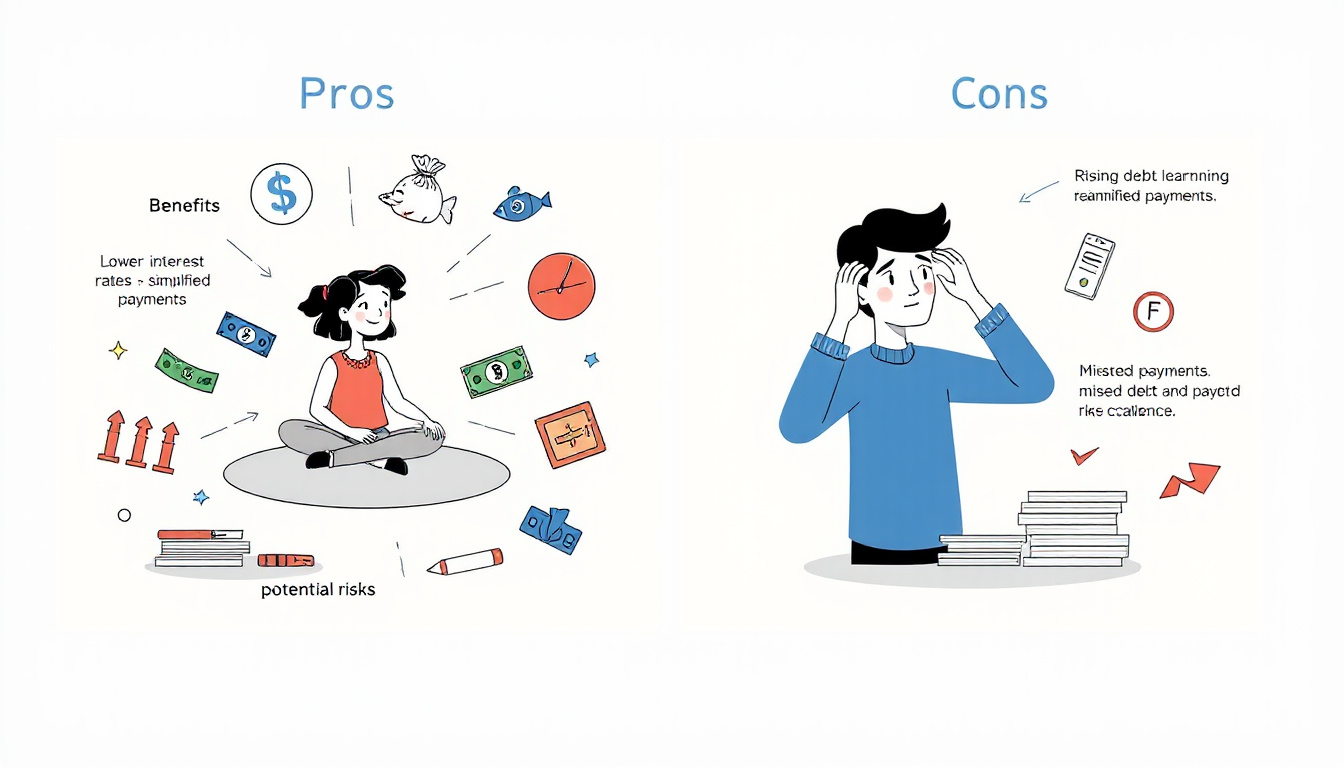Mastering Debt Consolidation: How to Combine Loans from Different Banks for Financial Freedom
Navigating the financial landscape can be challenging, especially when juggling multiple debts from various lenders. If you’re grappling with the question, ‘Can I consolidate debts with different banks?’ you’re not alone. This article delves into the essentials of debt consolidation, providing valuable insights into the steps you can take to merge your loans from different banks, the benefits of doing so, and the challenges you may face along the way. By understanding debt consolidation and exploring your options, you can take significant strides towards achieving financial freedom. Let’s embark on this journey together and put you on the path to a more manageable financial future.

Key Takeaways
- Debt consolidation can simplify your financial situation by combining loans from multiple banks.
- Before consolidating, evaluate your current debts to determine the best approach for your needs.
- The process of consolidation typically involves applying for a new loan to pay off existing debts.
- Benefits of consolidation include potentially lower interest rates and easier payment management.
- However, be aware of challenges such as fees, potential impact on credit scores, and the need for discipline in managing new debt.
Understanding Debt Consolidation: An Overview
When managing multiple debts, many Canadians wonder, ‘Can I consolidate debts with different banks?’ The answer is yes. Debt consolidation is a financial strategy that involves combining various debts, often from different lenders, into a single loan with a potentially lower interest rate. This can simplify your monthly payments, making it easier to manage your finances. Consolidation can be achieved through personal loans, balance transfer credit cards, or, in some cases, a home equity line of credit. It’s essential to shop around for the best rates and terms from various banks to determine what suits your financial situation best. Before proceeding, evaluate your current debts, assess your income and expenses, and consider speaking with a financial advisor to find a tailored solution for your debt relief needs.
Steps to Consolidate Loans from Different Banks
If you’re overwhelmed by multiple debts across various banks, you may be wondering, ‘Can I consolidate debts with different banks?’ The good news is yes, you can! Loan consolidation is an effective strategy to streamline your payments and reduce interest rates. To begin consolidating loans from different banks, follow these steps: First, list all your current loans, including the outstanding balances, interest rates, and monthly payments. Next, research consolidation options such as personal loans, home equity loans, or lines of credit, comparing offers from various lenders for the best terms. Once you’ve chosen a suitable option, apply for the consolidation loan and use the funds to pay off your existing debts, ensuring you are left with a single monthly payment. Remember to maintain healthy financial habits post-consolidation to prevent future debt accumulation.
‘It’s not about how much money you make, it’s about how much money you keep and how hard it works for you.’ – Robert Kiyosaki

Benefits and Challenges of Debt Consolidation
Debt consolidation can be a useful strategy for managing multiple debts, especially when they are held with different banks. Can I consolidate debts with different banks? The answer is yes, you can! Debt consolidation allows you to combine various debts into a single loan, which often results in a lower overall interest rate and simplified monthly payments. One of the main benefits of consolidating debts from different banks is that it streamlines your financial obligations, making it easier to keep track of payments and reducing the risk of missed deadlines. Additionally, by consolidating, you may improve your credit score if you manage the new consolidated loan responsibly. However, there are challenges associated with this approach. For instance, if you have debts with higher interest rates, you may not always secure a lower rate during consolidation. Moreover, if you secure a secured consolidation loan, you risk losing collateral if you fail to repay it. Therefore, it’s essential to evaluate both the benefits and challenges carefully before deciding whether debt consolidation is the right choice for your financial situation.
